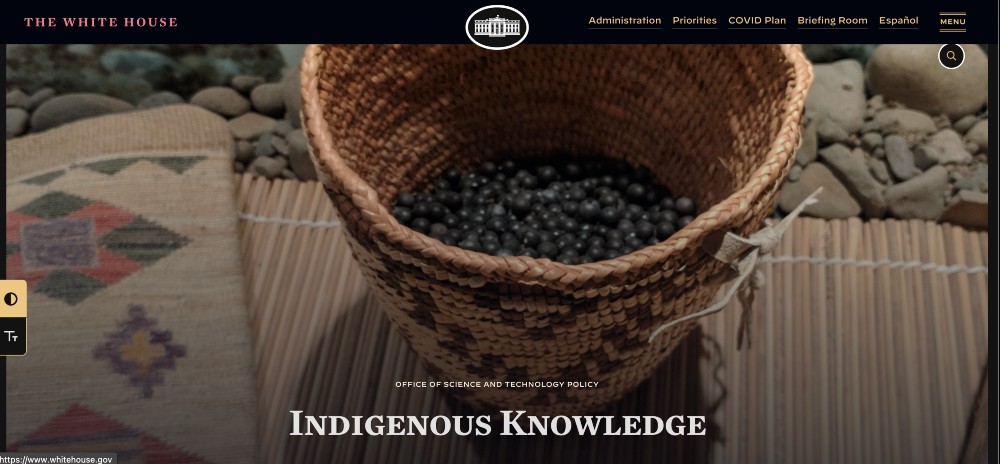
- Details
- By Jenna Kunze
The White House Council on Native American Affairs on Monday, July 18, held its third engagement session to hear from tribal leaders on the protection of sacred sites and treaty rights.
The meeting was led by Secretary of the Interior Deb Haaland, who co-chairs the council with White House Domestic Policy Advisor Ambassador Susan Rice.
The aim of the engagement sessions, which began in January 2022, was to fulfill Haaland’s commitment to convene her cabinet three times a year to hear from tribal leaders and share the work of the White House Council on Native American Affairs.
Also present in Monday’s meeting were Secretary of Agriculture Tom Vilsack, Senior Advisor and Assistant to the President and the Director of the White House Office of Intergovernmental Affairs Julie Chavez Rodriguez, EPA Deputy Administrator Janet McCabe, and Department of the Interior Assistant Secretary for Indian Affairs Bryan Newland.
Today’s session addressed the impacts of climate change in Indigenous communities, the implementation of the Indigenous Traditional Ecological Knowledge Memorandum that commits to elevating Indigenous Traditional Ecological Knowledge in federal scientific and policy processes, and the Office of Science and Technology Policy’s new Indigenous Knowledge website, according to a press release from the Department of the Interior.
More Stories Like This
Native News Weekly (August 25, 2024): D.C. BriefsNCAI Releases Sttatement on the Passing of Rev. Jesse Jackson
Colusa Indian Energy Participates in Port of Quincy Town Hall on Columbia Basin Power Project
Q&A: Jingle Dress Dancer Answered Call to Ceremony in Face of ICE Violence
Haaland Gets First Hand Look at Efforts to Address Homelessness in Albuquerque
Help us defend tribal sovereignty.
At Native News Online, our mission is rooted in telling the stories that strengthen sovereignty and uplift Indigenous voices — not just at year’s end, but every single day.
Because of your generosity last year, we were able to keep our reporters on the ground in tribal communities, at national gatherings and in the halls of Congress — covering the issues that matter most to Indian Country: sovereignty, culture, education, health and economic opportunity.
That support sustained us through a tough year in 2025. Now, as we look to the year ahead, we need your help right now to ensure warrior journalism remains strong — reporting that defends tribal sovereignty, amplifies Native truth, and holds power accountable.
 The stakes couldn't be higher. Your support keeps Native voices heard, Native stories told and Native sovereignty defended.
The stakes couldn't be higher. Your support keeps Native voices heard, Native stories told and Native sovereignty defended.
Stand with Warrior Journalism today.
Levi Rickert (Potawatomi), Editor & Publisher


